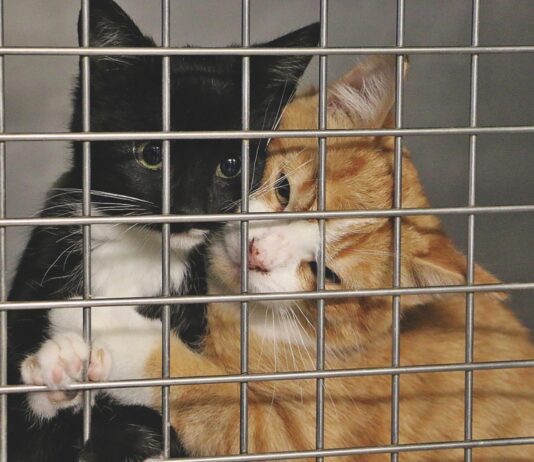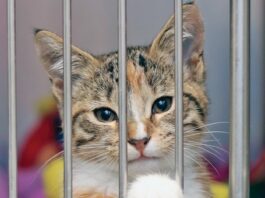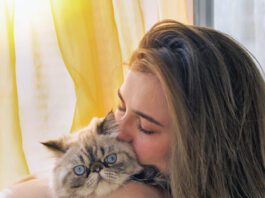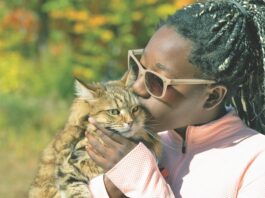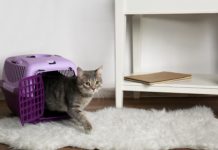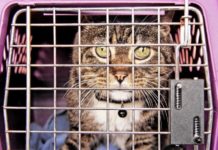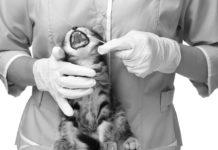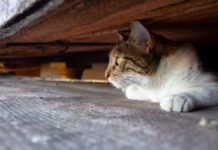Halitosis in Cats
Your beloved cat climbs into your lap, rubs on your chin and then yawns by your face. Suddenly, you are overwhelmed by foul air. It is unreasonable to expect your feline friend to have minty fresh breath, but healthy cat breath really isnt offensive. Causes for fetid feline breath can range from minor to serious.
Teach Your Cat to Like Her Carrier
Cat carriers are the safest way to transport your cat, be it to a veterinary appointment or to visit family for the holidays. They keep your cat secure, so that she cant get into trouble in an unfamiliar environment or be harmed in any way. In the case of a car crash, being in a carrier could save your cats life. But there is one challenge to this wonderful tool: getting your cat inside it.
Hold the Carbs
In an effort to see what difference diet might make to an obese cats blood glucose control, researchers fed three diets-one high in carbohydrates, one high in fats, and one high in protein-to healthy-weight and obese cats and measured plasma levels of glucose, insulin, free fatty acids, and triglycerides. The study, published by BMC Veterinary Research, was done at the University of Zurich.
When Kitty Needs a New Home
Cats may find themselves in need of a new home for a variety of reasons: death of an owner, a change in the familys situation, incompatibility with other pets in the household, or being caught as a stray. Just like us, most cats dont like change, and transitions can be difficult.
Prepare Now to Protect Your Cat in a Disaster
As we go to press, Hurricane Irma has strengthened to a Category 5 storm and is headed toward land, only a few days after we endured Hurricane Harvey, which destroyed its way into the record books. When it all settles, were pretty sure the losses involving pets will be quite sobering, possibly surpassing those of Hurricane Katrina, the disaster that showed us the inadequate preparations most of us make to safeguard our pets during a catastrophe.
Calories, Carbs, and Ingredients in Grain-Free Diets
On average, the grain-free diets were lower in carbohydrates than the diets that contained grain, but there was a wide range in carb content across all of the foods. This means that if your cat needs a diet with fewer carbs, choosing a grain-free diet does not guarantee that the carbohydrate content will be lower than the food you are currently feeding.
Take Charge of Your Cats Dental Health
Many cats show some signs of periodontal gum disease by three years of age. Reports indicate between 50 and 90 percent of all cats over four years of age will have some degree of dental disease.
Feline Lower Urinary Tract Disease
Feline lower urinary tract disease, or FLUTD, is a problem that cat owners everywhere dread. Litter box accidents, bloody urine, or a cat straining to urinate can all concern families. In some cases, this is an emergencyin others, a painful annoyance for you and your cat. In general, when a cat has urinary problems, its important to rule out any medical conditions before considering behavioral problems (to be covered in another issue). A common indication of
Lost Cats and How to Find Them
Lost cats leave behind heartbroken families. And, if theyre not found, they contribute significantly to the homeless, feral, shelter, and community cat populations. Unfortunately, its an all-too-common situation. At least a third of all cats get lost at some point in their lives, says Pam Stonebraker, associate executive director and humane education coordinator at the Tompkins County, N.Y., SPCA.
Panting in Cats
Cats do not pant on a regular basis like dogs do. Feline panting can be either normal or due to underlying medical problems.
Feline-Friendly Dogs
A study published in the January 2017 Journal of Applied Animal Behaviour Science may help you determine if a dog you want to adopt will get along with your cat.
Special Note of Remembrance for CatWatch Editor Betty Liddick
We are saddened to report that our friend and colleague Betty Liddick died June 21 following a brief illness. Betty began her long career in journalism as staff writer for numerous notable newspapers, including the St. Petersburg Times, the Los Angeles Times, the Detroit Free Press and the Orange County Register, before turning full-time to her first love-writing about dogs and cats. A former editor of Dog Fancy (now Dogster) magazine, she devoted the past…

